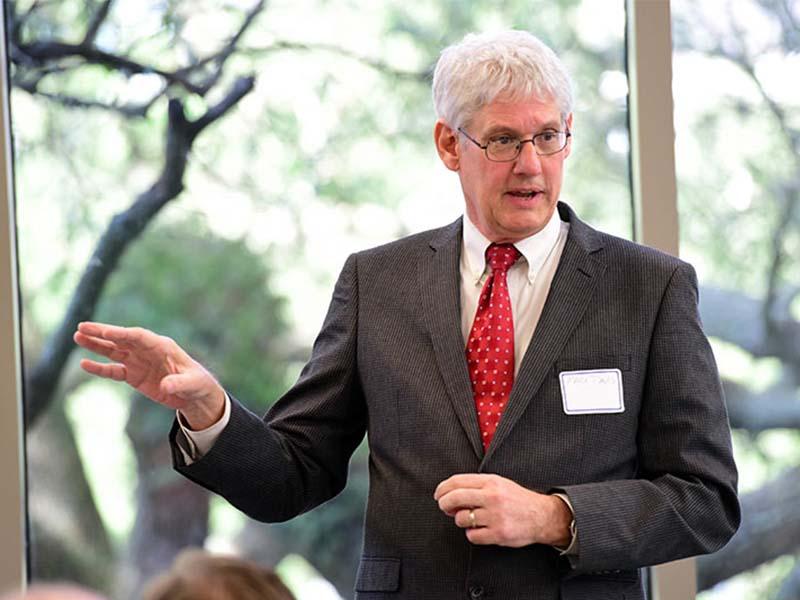Director's Message: The Environmental Law program at Tulane is pushing boundaries
It’s a weird world, but somebody has to live in it -- or so said a Tulane student disc jockey some years back, and boy, was she right. The words lodged in my brain because they were not meant as a lament. It was an encouragement to get out there and be part of the world, to engage with it, and maybe even make it better.
Don’t wait for easier times before getting into the action. It’s probably a good idea in general, but it is absolutely baked into the environmental law program at Tulane Law. Here, environmental law is not just something we teach but something we help shape and live.
Is that because we are located in New Orleans, a city that’s a wholly owned subsidiary of the wildly productive and profoundly threatened coastal waterscape molded by the Mississippi River and the Gulf of Mexico? That is part of it, but that would not explain why we attract students from around the nation and the world. It would not explain our horizon-pushing Utility Vegetation Management Initiative or our Master of Jurisprudence degree programs in Environmental and Energy Law that reach well beyond the campus and traditional legal education models.
A better explanation is that every place we look we see important parts of our world, communities, and lives being impacted by environmental change, change that begs for timely action and unconventional interdisciplinary thinking. And our students, alumni, and scholars push boundaries, too. Just read what is in this edition of our newsletter.
We see the impact of the Tulane Environmental Law Clinic whose work and expertise in environmental justice and the intersection of public policy and law has helped struggling communities in Louisiana. And, you can read about alumnus Harry Vorhoff (L’13), who chaired the governor’s Climate Initiatives Task Force and who had the monumental task of getting stakeholders to agree on a comprehensive and first-of-its-kind Louisiana Climate Action Plan. Take a look at what our students are doing during their ‘green summers’ and how they impact the environmental law landscape. We see the importance of interdisciplinary work in a story about alumnus Jarod Davis (L’05), Director of U.S. Policy & Issues Management for Dow, who had dedicated his career to policy work and now has funded a summer externship to help law students learn from those in the field.
This is exactly what environmental law means here at Tulane, and we have the record to prove it. Whether the issue is who gets to use the Mississippi River (and how), forging relationships with European Union nations and universities to improve environmental stewardship, or working to make existing laws work for everyone the way they were supposed to (as our Environmental Law Clinic does every day), our programs, students and partners are making a difference and shaping the law and legal profession to better deal with today’s challenges and prepare for tomorrow.
The world may be weird, but it waits for no one. Neither do we.
Mark Davis is Director of the Tulane Center for Environmental Law, Director of the Institute on Water Resources Law and Policy and Faculty Director, Master in Jurisprudence in Environmental & Energy Law.

